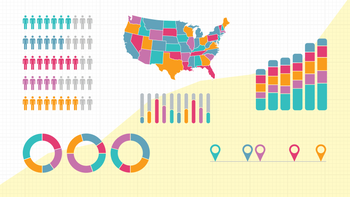
10 Carvedilol (Coreg) Side Effects You Should Know About
Key takeaways:
Carvedilol (Coreg) is a beta blocker that’s used to treat high blood pressure and heart failure. It can also improve survival rates in people who have had a heart attack.
Common carvedilol side effects include low blood pressure, slow heart rate, and dizziness. Fatigue and nausea are also possible.
Rare but serious side effects of carvedilol can include rapid weight gain, swelling, and trouble breathing. Contact your healthcare provider right away if you notice these symptoms when taking carvedilol.
Access savings on related medications
Table of contents

Carvedilol (Coreg) is a beta blocker medication that treats high blood pressure and heart failure. It can also lower the risk of death and hospitalization following a heart attack. People who have these heart problems may need to take carvedilol long term.
Carvedilol is usually well-tolerated and tends to have fewer side effects than other beta blockers. Most of its side effects are dose-related, meaning higher doses tend to cause more side effects. Below we’ll discuss 10 carvedilol side effects you should know about and ways to manage them.
1. Low blood pressure and slow heart rate
Carvedilol can cause your heart to pump slower and with less force. This is how it helps lower blood pressure and control your heart rate. This may be a good thing when it comes to treating certain heart conditions, but it can also cause bothersome side effects.
Get Exclusive Savings on Toprol XL (metoprolol ER)
With GoodRx you can save big on Toprol XL.

GoodRx is NOT insurance. GoodRx Health information and resources are reviewed by our editorial staff with medical and healthcare policy and pricing experience. See our editorial policy for more detail. We also provide access to services offered by GoodRx and our partners when we think these services might be useful to our visitors. We may receive compensation when a user decides to leverage these services, but making them available does not influence the medical content our editorial staff provides.
© 2025 Melinta Therapeutics, LLC All rights reserved 5/2025 PP-TOP-US-0017
Symptoms of low blood pressure can include dizziness, blurred vision, and feeling lightheaded. A sudden drop in blood pressure can also occur when you change from a lying or sitting position to a standing position. This is known as orthostatic hypotension. When this happens, you may feel dizzy and unsteady. Move slowly when getting up from a sitting or lying position to avoid falling and hurting yourself. It’s recommended to take carvedilol with food to help prevent this side effect.
A slower heart rate may make it more difficult to exercise or go up the stairs. Give your body some time to adjust to the medication and try not to do too many strenuous activities when you first start taking carvedilol.
Not everyone will experience symptoms of a slow heart rate or low blood pressure. And often these symptoms will go away as your body adjusts to taking carvedilol. But if these symptoms don’t resolve or worsen, be sure to follow up with your healthcare provider. They can make sure carvedilol is still safe for you to take.
2. Dizziness
Dizziness is one of the most common side effects of carvedilol. It can be a result of a slow heart rate or low blood pressure caused by this medication. Fortunately, dizziness usually fades within the first few days of taking carvedilol.
When you first start taking carvedilol, be very careful when driving or doing any activities that need full alertness. Dizziness may impair your ability to perform these activities safely. As with low blood pressure, it may also help to move slowly when sitting up or standing. Dizziness can make falls more likely, so moving carefully can help prevent them.
Let your healthcare provider know if you have persistent or worsening dizziness. Your carvedilol dose may need to be changed, or there could be something else causing it.
3. Fatigue
Carvedilol can also make you feel tired and weaker than usual. Like dizziness, fatigue is also likely caused by a slow heart rate and low blood pressure.
Ways to manage fatigue include getting plenty of rest, keeping yourself hydrated, and eating a healthy diet. Keeping yourself active throughout the day by going on walks or doing light exercises can also help.
It’s good to note that other medications and health conditions can also cause fatigue. So if there’s no improvement in your fatigue or it gets too bothersome, let your healthcare provider know right away.
4. Nausea and vomiting
Nausea and vomiting are possible side effects of carvedilol. As mentioned, you should take carvedilol with food to avoid orthostatic hypotension. Food can also help prevent nausea from happening. Just try to avoid spicy or fried food, which can make nausea worse. If you happen to vomit, make sure to drink plenty of water and beverages with electrolytes to avoid becoming dehydrated.
If you notice that these side effects are getting worse over time, let your healthcare provider know. They may need to switch you to a different beta blocker.
5. Diarrhea
Diarrhea can be a common side effect of carvedilol. But it can also be caused by a variety of other things. If you experience diarrhea right after starting carvedilol, then it may be a possible culprit. But if you’ve been taking carvedilol for a while and suddenly have diarrhea, then it’s worthwhile to look elsewhere for the cause.
Ways to manage diarrhea include eating a bland diet and drinking plenty of fluids with electrolytes. Over-the-counter (OTC) treatment options, such as loperamide (Imodium A-D) and bismuth subsalicylate (Pepto-Bismol) may also help.
If your diarrhea doesn’t go away within a few days or you also have a fever, let your healthcare provider know right away. This could be a sign of a more serious problem.
6. Weight gain
Carvedilol can cause weight gain in some people, especially if you take it long term. A study found that beta blockers can slow down your metabolism, which can result in weight gain. Fatigue caused by carvedilol can also make exercising more difficult, which can make it harder to maintain a healthy weight.
The best way to manage weight gain while on carvedilol is to eat a well-balanced diet and exercise regularly. Try to stick to a workout routine you enjoy that works well with your lifestyle.
Good to know: Rapid weight gain can be a sign of worsening heart failure. If you notice a weight gain of more than two or three pounds in a day or more than five pounds in a week, let your healthcare provider know right away.
7. Swelling or fluid buildup
When taking carvedilol, there’s a risk of swelling or fluid buildup, especially when you first start taking it. But excess fluid can also be a sign of worsening heart failure. If you notice that you’re retaining fluid in your legs or feet, let your healthcare provider know. They may add on or increase the dose of a diuretic (“water pill”) to help get rid of excess fluid from your body.
8. Sleep changes
Although rare, carvedilol can affect how well you sleep. During clinical trials for carvedilol, people taking it for heart failure were more likely to feel drowsy. But people taking it for high blood pressure had a harder time falling asleep. Beta blockers like carvedilol are also known to cause nightmares or disturbing dreams in some people.
If you find it hard to fall asleep at night, try to engage in relaxing activities before bedtime, such as taking a warm bath or reading a book. If possible, avoid watching TV or scrolling through your phone. You can also talk to your healthcare provider about OTC or prescription sleep medications that may help.
9. Shortness of breath
Carvedilol is considered a non-selective beta blocker. This means that it targets receptors (chemical binding sites) throughout the body — including the lungs. When carvedilol activates receptors on the lungs, it has a tightening effect on the muscles lining your airways. This can make it harder to breathe, especially if you have asthma or other lung conditions.
If you have a history of lung issues, your healthcare provider may suggest a cardioselective beta blocker instead. These beta blockers are less likely to affect your lungs. Be sure to let your provider know if you have any history of lung problems before starting carvedilol.
10. Erectile dysfunction
Carvedilol can cause erectile dysfunction (ED) or lower sex drive in some people. But ED tends to be less likely with carvedilol than other beta blockers, such as atenolol (Tenormin) or propranolol (Inderal).
If you have a hard time obtaining or maintaining an erection while taking carvedilol, let your healthcare provider know. They can help put together a treatment plan to improve your symptoms.
When should I contact my healthcare provider about carvedilol side effects?
Most common carvedilol side effects should resolve on their own once your body has time to adjust to the medication. But if at any time you feel that they’re getting worse or not improving, let your healthcare provider know.
If you notice rapid weight gain, swelling, or difficulty breathing, seek medical attention right away. This could be a sign of a more serious problem, especially if you have heart failure or asthma.
Keep in mind that you shouldn’t stop taking carvedilol suddenly unless your healthcare provider tells you to. Stopping carvedilol abruptly can lead to chest pain, fast heart rate, and even heart attacks. Your healthcare provider can help you stop taking carvedilol safely over time if needed.
The bottom line
Carvedilol is a beta blocker medication that treats certain heart conditions. Common carvedilol side effects include low blood pressure and a slow heart rate. Dizziness, fatigue, and nausea are also common. These symptoms often go away over time as your body adjusts to taking carvedilol.
Sleep issues and erectile dysfunction are less common, but they can sometimes be an issue. Serious carvedilol side effects include rapid weight gain, swelling, and difficulty breathing. Let your healthcare provider know right away if you experience serious side effects when taking carvedilol.
Why trust our experts?



References
American Family Physician. (2000). Taking a beta blocker for your heart problem.
American Heart Association. (2023). Managing heart failure symptoms.
Lee, P., et al. (2011). Metabolic sequelae of β-blocker therapy: Weighing in on the obesity epidemic. International Journal of Obesity.
Nemeth, V., et al. (2022). Diarrhea. StatPearls.
RPK Pharmaceuticals, Inc. (2023). Carvedilol - carvedilol tablet, film coated [package insert].
Sackner-Bernstein, J. D. (1998). Use of carvedilol in chronic heart failure: Challenges in therapeutic management. Progress in Cardiovascular Diseases.
Sharma, A. M., et al. (2001). Hypothesis: β-adrenergic receptor blockers and weight gain. Hypertension.
Singh, S., et al. (2023). Carvedilol. StatPearls.
Was this page helpful?
Related Articles
Browse medications
View AllResearch prescriptions and over-the-counter medications from A to Z, compare drug prices, and start saving.




























